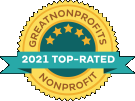PHILADELPHIA, Apr. 24 2013 – The Wharton School of the University of Pennsylvania announced today the winner of the second annual Barry & Marie Lipman Family Prize – READ Global, an international non-profit bringing together education, enterprise, and community development through libraries that create lasting social change in rural South Asia. Chosen from over 115 organizations worldwide devoted to social impact and building sustainable solutions for social and economic challenges, READ Global received $100,000 at an award ceremony last night at the Wharton School. READ Global, along with the two other finalist organizations, d.light design, a for-profit social enterprise whose purpose is to create new freedoms for customers without access to reliable power, and MCI, a not-for-profit development organization seeking to revolutionize how deadly diseases are prevented and managed worldwide by promoting what they call “contagious health”, will all profit from unprecedented, synergistic opportunities with Penn and Wharton. These opportunities will take the form of student case work and site visits to each of the finalist organizations, executive educational offerings, and the chance to network within the larger Penn and Wharton academic and alumni communities.
Dr. Amy Gutmann, University of Pennsylvania President said, “In keeping with the grand traditions of Ben Franklin, his University, and the Wharton School, the Barry and Marie Lipman Family Prize fuels exactly what our world needs: local solutions that have global applicability. We look forward to seeing the increased scale and transferability of the READ Global organization in the coming years.”
“Receiving the Lipman Family Prize is both an honor and inspiration for the entire READ team,” said Tina Sciabica, Executive Director of READ Global. “READ Centers are powerful catalysts for social and economic change in the developing world, and this prize is an exciting testament to the impact of our model and its potential for replication. We look forward to strengthening our work through our partnership with the University of Pennsylvania and Wharton.”
“We’ve always had a strong desire to impact the non-profit/social responsibility sector,” said Barry R. Lipman, co-founder of California law firm Goldfarb Lipman. “This has been a wonderful two years of work, working on partnerships with last year’s finalists, meeting this year’s finalists and getting to see the wonderful networks that have already been forged within the 2013 finalist community. It’s a great testament to the power of getting great minds in a room together to work on common global issues. I look forward to continuing the work we’ve started with READ Global, d.light design, and MCI.”
“This is the beginning of a long partnership with READ Global, d.light design, and MCI as new members of the Wharton and Penn community,” said Thomas S. Robertson, the dean of the Wharton School. “The possibilities of these cross-sector collaborations are powerful and we look forward to our ongoing role in fostering sustainable new solutions for the advancement of society as a whole.”
About the 2013 Lipman Family Prize Winner
READ (Rural Education and Development) Global believes that empowering rural communities is critical to alleviating global poverty. READ partners with rural villages in Bhutan, India and Nepal to build Community Library and Resource Centers (READ Centers) that offer educational and economic opportunities and programs to villagers that lack the most basic resources. Each READ Center is paired with a for-profit enterprise that generates revenue to sustain the center in the long run. READ works with some of the most disadvantaged populations in the world, where literacy rates are less than 50% and more than half of families live below the poverty line. By engaging and investing in READ Centers, rural communities are empowered with access to information, education and skills training – ultimately experiencing positive social transformation and increased economic opportunity. This cumulative “READ Effect” results in increased knowledge and prosperity for rural communities today, and better prospects for the future.
Since 1991, the READ model has evolved from the idea of rural libraries to a thriving network of READ Centers and for-profit enterprises providing a variety of programs and resources for community development. To date, 67 READ Centers have been established and 98 for-profit enterprises sustain READ Centers, providing access to 1.95 million rural villagers. READ has established programs in literacy, women’s empowerment, livelihood skills, information communications technology and more. Every day, rural villagers are visiting READ Centers and improving their reading skills, learning how to access the Internet, gaining income-generating skills, and accessing critical health information.
About The Lipman Family Prize
Currently in its second year, the Lipman Family Prize has been made possible by a $6.5 million gift from Wharton alumnus Barry R. Lipman and his wife, Marie. “We’ve always had a strong desire to impact the non-profit/social responsibility sector,” said Barry R. Lipman, co-founder of California law firm Goldfarb Lipman. “This has been a wonderful two years of work, working on partnerships with last year’s finalists, meeting this year’s finalists and getting to see the wonderful networks that have already been forged within the 2013 finalist community. It’s a great testament to the power of getting great minds in a room together to work on common global issues. I look forward to continuing the work we’ve started with READ Global, d.light design, and MCI. ”
Administered by the University of Pennsylvania through the Wharton School, the Lipman Family Prize is governed by an interdisciplinary Steering Committee comprised of faculty, and staff from across the University of Pennsylvania, with support, expertise and partnership from entities such as the Wharton Social Impact Initiative, the Center for High Impact Philanthropy, Wharton’s Center for Leadership and Change Management, the Netter Center for Community Partnerships, and the School of Social Policy and Practice. The selection of Prize finalists involved a Student Selection Committee that reviewed initial submissions and conducted the due diligence process under staff guidance, and a Prize Committee that selected the finalists and chose the winner.
For more information on the 2013 Lipman Family Prize, visit www.wharton.upenn.edu/lipmanfamilyprize.
NOTE TO EDITORS: A high-resolution photo of the winner is available upon request. Also available is an overview video produced for the Awards Dinner. Finally, interviews are available upon request. Contact Kate FitzGerald, Director of Marketing, Wharton Leadership Program at 267.901.1511 or kfitz@wharton.upenn.edu, or READ Global at 415.563.3362 or readsf@readglobal.org.
About the Wharton School The Wharton School of the University of Pennsylvania—founded in 1881 as the first collegiate business school—is recognized globally for intellectual leadership and ongoing innovation across every major discipline of business education. The most comprehensive source of business knowledge in the world, Wharton bridges research and practice through its broad engagement with the global business community. The School has 5,000 undergraduate, MBA, executive MBA, and doctoral students; more than 9,000 annual participants in executive education programs; and an alumni network of 91,000 graduates.




